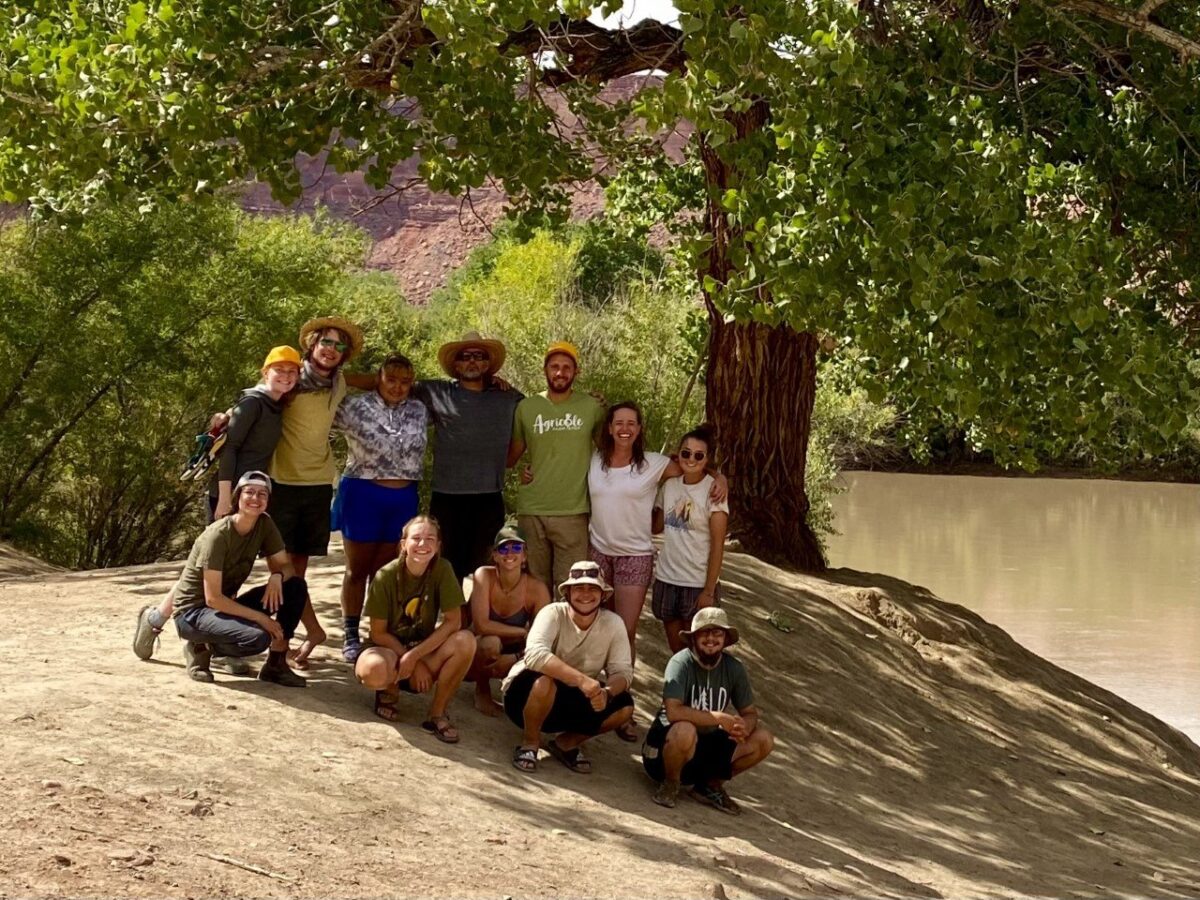By Matthew Eshed and Brian Wagenaar
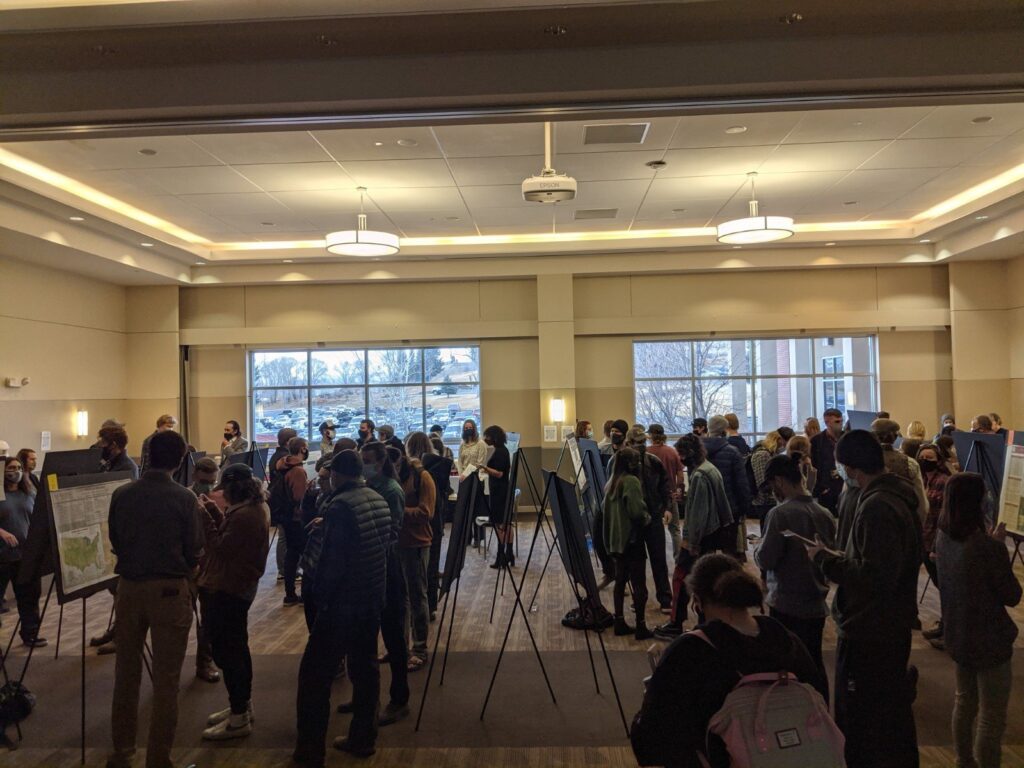
On Tuesday, Dec 7, the annual Fall Forum took place, hosted by the Clark Family School of Environment and Sustainability (ENVS) and organized by Dr. Kate Clark and Brianna Gilbreath. This was the chance for two classes – one graduate-level (ENVS 608: Environmental Politics and Policy), as well as an undergraduate ENVS class (ENVS 390: Environmental Monitoring), to highlight their research posters to an audience of their peers.
The posters highlighted hot environmental topics, including water and wetland conservation, the promotion of prescribed burns and wildlife corridors, and the integration of Indigenous knowledge, culture, and peoples into the realm of sustainability and the environment. One poster was centered on a proposal to grant the right of first bid to Indigenous peoples for work slated to take place on their traditional lands, particularly in ecological contexts.
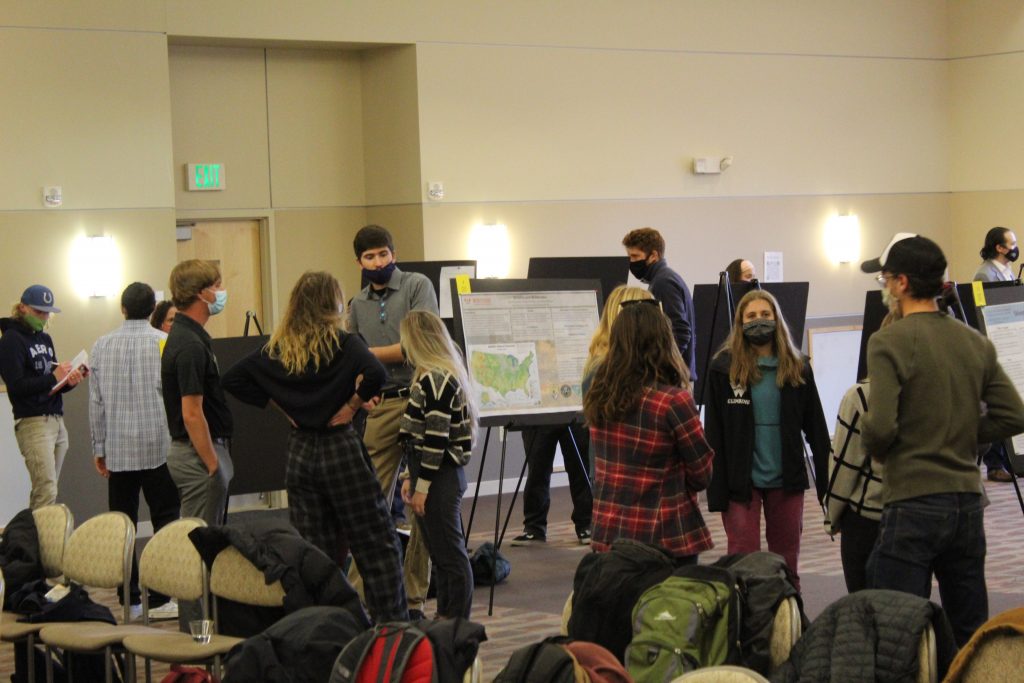
The students involved noted that this proposal could have numerous benefits, including providing meaningful work for Indigenous peoples utilizing their traditional cultural and ecological knowledge, and restoring lands in a manner consistent with their traditional management. “Having traditional ecological knowledge (known as TEK) gives a very intimate knowledge of the landscape, and if you’re not hiring the people with that relationship, you are not hiring the best people for the job, said Brennan Jordan, one of the team’s members.
Presently, the relationship between land managers and Native communities revolves around the concept of “consultation,” where Native peoples are contacted but local, state, and federal land managers retain the final say and often give little explanation for their decisions.
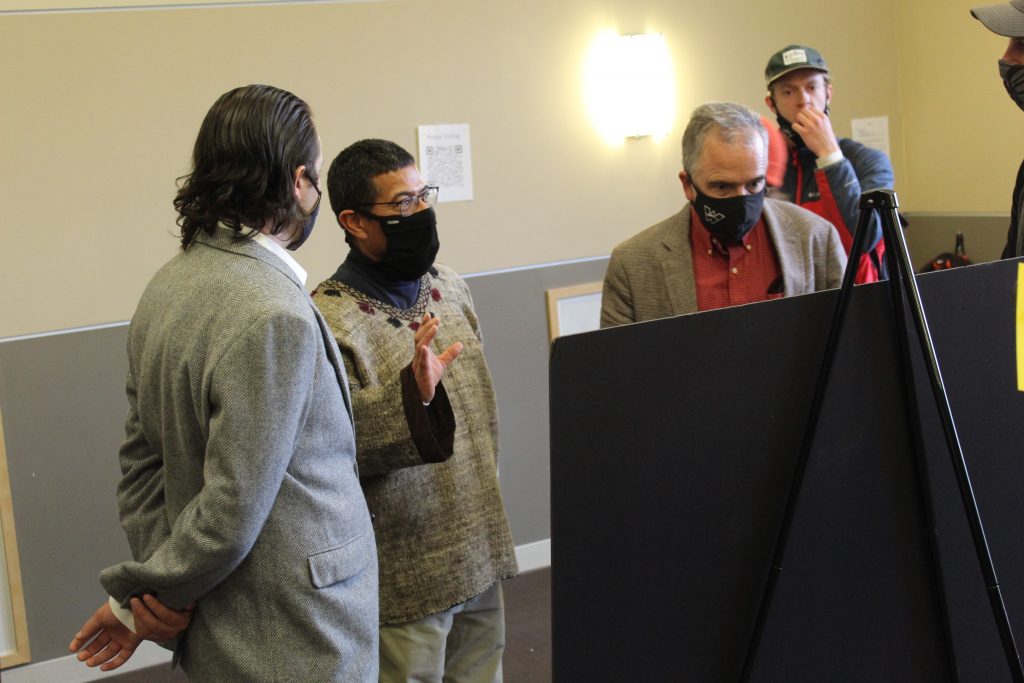
Another first-year MEM student, 3+2 program enrollee Dylan Aguilar, set his (and his group’s) sights on promoting prescribed fire as an ecological management tool. “We’re trying to revise the National Fire Plan that was enacted in the early 2000’s to [utilize] more prescribed burns in National Forests and fire-adapted landscapes,” said Aguilar, who notes that fire management has traditionally emphasized suppression, overlooking the ecological benefits that moderate-intensity fire can have on many landscapes.
After the poster session, presentations concerning student clubs, scholarships and fellowships, and coursework were made, including opportunities to take a summer regenerative agriculture course with the Organics Guild, fellowships with the Coldharbour Institute, an internship opportunity with the Center for Public Land’s winter recreation study, and offerings to join environmental clubs like Sustainability Coalition (recently revived and working on matters of composting and waste) and GreenFaith, a new interfaith environmental club on campus.
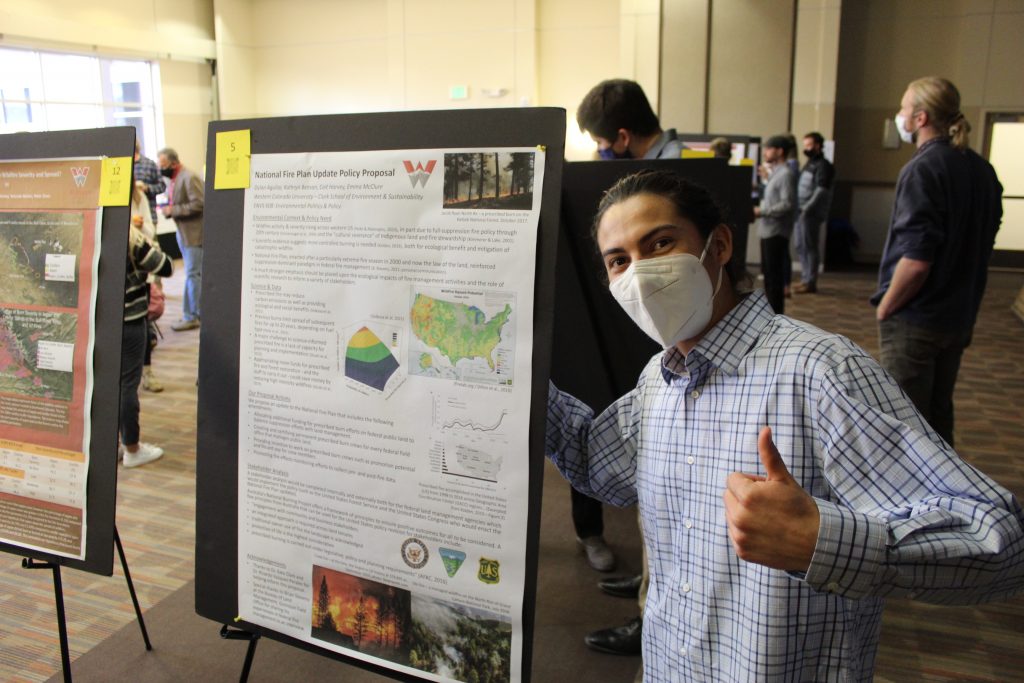
Forum attendees were also regaled with tales from this year’s Mountains and Rivers experiential 5-week field class, led by Dr. Jonathan Coop. That trip included backpacking ventures to the Powderhorn, Ragged, and West Elk Wilderness areas, a work stint at Thistle Whistle Farm in Hotchkiss, Colorado, and a rafting trip down the Green River. The students raved about the class, calling for all ENVS students to take it, and presented a video documenting their experience. In his recollection of the course, ENVS student Triston Turner put it this way:
“I didn’t find the answers to all the questions I still have. What I did gain, however, was a new perspective on how I viewed my relationship to nature, and the earth, something I thought I had figured out as an environmentalist… Sometimes, you form bonds with other beings that you never forget, and whom you hope to never forget you. Sometimes, you become shaped by the land you belong to. Sometimes, you feel small and insignificant, especially when looking up at a sky full of stars, or when looking to the mountain, or when watching the blue moonlight bouncing off of steep, red cliffs. Sometimes, it takes five weeks of getting good and lost to start to find yourself again.
Triston Turner
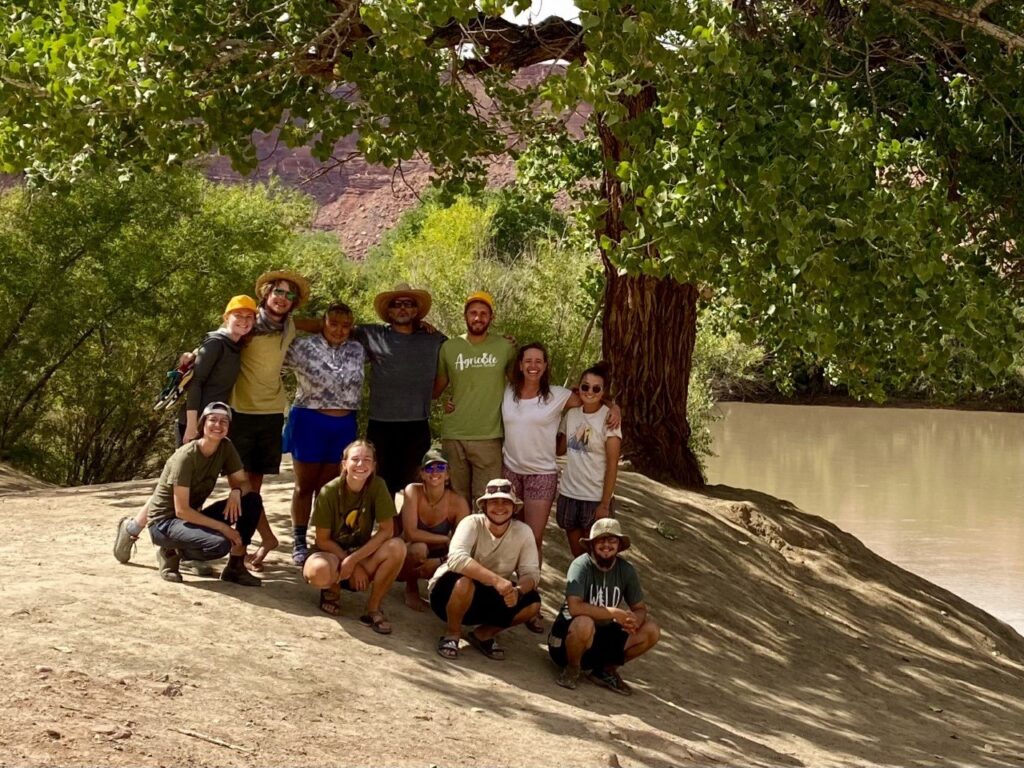
Senior ENVS student Tess Peterson offered this about her experience, and in defense of experiential education:
“While I was prepared to learn about botany, geography, geology, ecology, etc., I was not necessarily prepared to learn about human connection, patience, spirituality, compassion, and emotion, but I did. I also did not anticipate gathering such a diverse, deep set of knowledge and skills as I did. This course surpassed my expectations, shifted my perspective in ways I am still trying to understand, and gave me lifelong friends. I argue that opportunities for outdoor education in college are essential. I contend that if you take a course like Mountains and Rivers it will stay with you for your whole life.”
Tess Peterson
Peterson then called on the Clark Family School of ENVS to make outdoor education courses a requirement.
After the recollections from the experiential course, Butch Clark, whose family’s name now graces the Clark Family School of Environment and Sustainability after a $4.5 million dollar gift to the school (in addition to previous donations tracing back to 1999 which included funding the creation of the Environment and Sustainability major), was honored with a plaque commemorating his family’s contribution. Over the summer the school was officially renamed for this sustainability leader in the community, but Dean Armstrong pushed for his official recognition in front of students during the Forum.
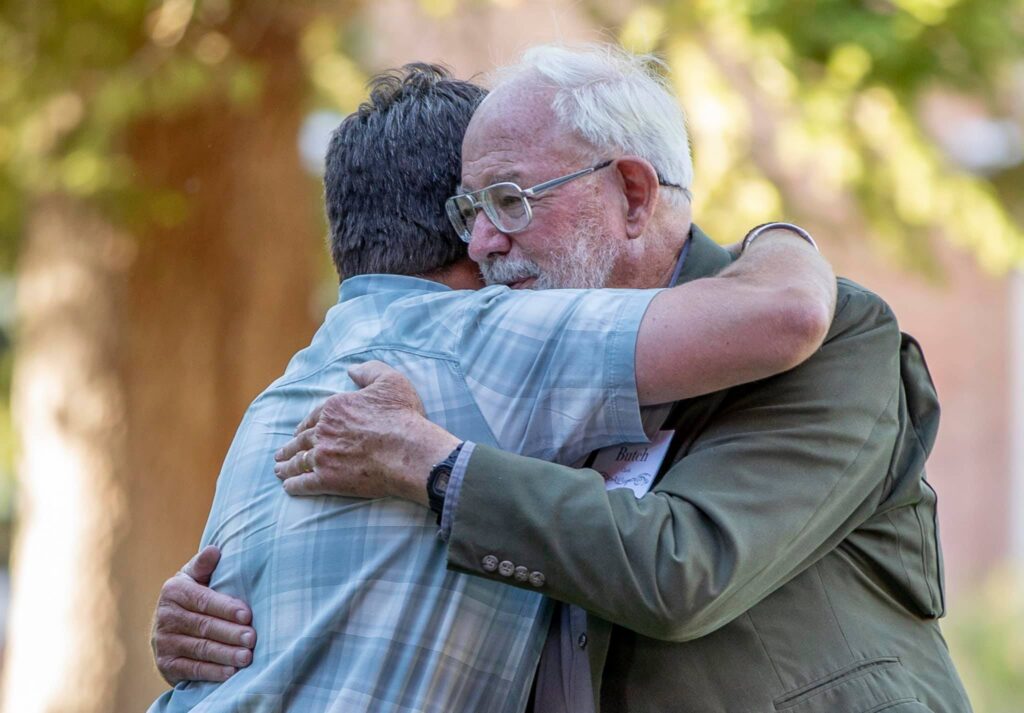
“I want to bring him up one more time, so the students who benefit so much from his contributions and his time know that he is here, he is curious to learn from you, he always has engaging questions, he wants to interact with this community…And I think that his gift of his time and his curiosity and his intellect is as meaningful to our school as everything else that he gives to us,” said Dean Armstrong.
At the of the Fall Forum, two winning policy proposals were selected by student vote: “Efficiency in Water & Sanitation: A Proposal for Household Greywater Recycling in the Gunnison Valley,” by MEM students Will Cazel, Peter Engh, Phillip Kern, and Michaela Norris, and “A Framework for Monitoring Outdoor Recreation in the Signal Peak Wilderness,” by ENVS undergraduates Jack Daves, Shelby Lowman, and Dalton Wolfinbarger. According to Professor Kate Clark, this was her favorite year of ENVS 608 presentations thus far.

